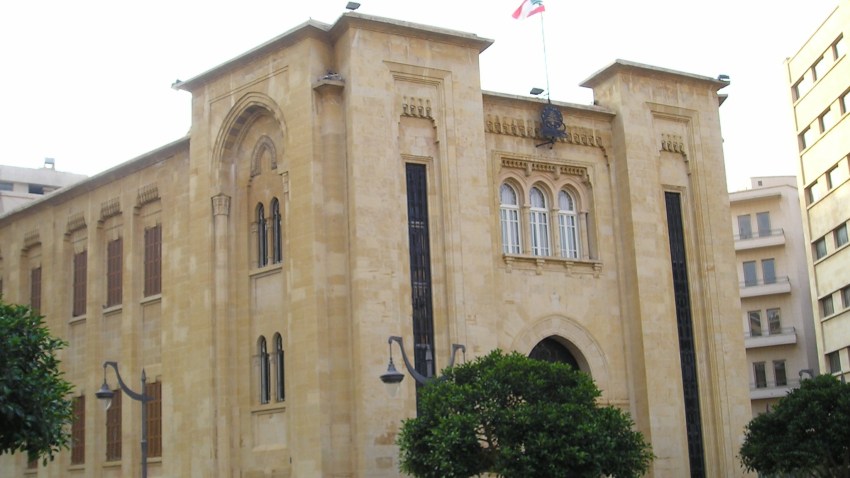On June 18, Lebanese parliamentarians met for the seventh time to elect a new president but failed to do so. Speaker Nabih Berri had to postpone the session to July 2, cautioning against a prolonged presidential vacuum reminiscent of 2007-2008, when it took 20 sessions to settle on Michel Suleiman as a compromise choice. The immediate cause of the failure to choose a successor to Suleiman, whose term expired on May 25, is the boycott of the majority of parliamentarians belonging to the pro-Hezbollah March 8 alliance.
But the root causes of the crisis are external. They are linked to the regional power struggle between Iran and Saudi Arabia, the main outside backers, respectively, of the Shiite Hezbollah and its rival, the Sunni Future Movement. So long as Tehran and Riyadh disagree over who should occupy the presidential seat in Baabda Palace, Lebanon will be without a head of state.
That the impasse has lasted so long is in some ways surprising. In February, Saudi Arabia and Iran, in a moment of realpolitik, came together to help
form a new government in Beirut that included all the relevant Lebanese political factions. That Tammam Salam, and not some hard-line and partisan Sunni figure, was appointed as the new prime minister was indicative of the Saudis and Iranians’ mutual desire to shield Lebanon from the chaos and unrest in the region, especially next door in Syria. Salam was considered by many observers to be a relatively neutral, consensus candidate for Tehran and Riyadh.
However, there are two reasons why this atmosphere of pragmatic Saudi-Iranian conciliation did not extend to the choice of Lebanon’s president. First, the formation of a new Lebanese government was an urgent priority for Tehran and Riyadh. The short-term objective was to enable Lebanon to deal with imminent security and humanitarian challenges—the Syrian spillover and the spread of terrorism—that directly threatened both Saudi and Iranian interests. Both Tehran and Riyadh were determined to prevent a prolonged political vacuum in Beirut, specifically the paralysis of the country’s security institutions.
With the presidency, however, it is back to the realm of more long-term competition and jockeying for influence in Lebanon. There seems to be no sense of urgency for either Iran or Saudi Arabia to fill this particular void, as each is trying hard to bring its preferred candidate—and that of its local allies—to power. After all, since the signing of the Taif Accord that ended the Lebanese civil war in 1990, the Lebanese presidency has lost many of its powers and privileges, and the current vacancy will not dramatically undermine security in the country.
Second, Lebanon’s Christian community, from which the president has historically been elected, is politically divided. The Free Patriotic Movement, led by Michel Aoun and allied with Hezbollah’s March 8 coalition, and the Lebanese Forces, spearheaded by Samir Geagea and part of the Future Movement’s March 14 coalition, fundamentally disagree over who should be the next president. So far, only Geagea has nominated himself as a presidential candidate, even though he and his constituents know that his chances are slim, given his bloody past during the civil war and his vehemently anti-Hezbollah political stance.
Aoun, meanwhile, believes that he has the largest Christian following in the country and thus should be the strongest contender. But he has yet to publicly announce his candidacy. Aoun said that he will not run unless he knows the results in advance. What that really means is that he will wait first for Saudi Arabia’s blessing, which he would need to win an election. But the Saudis have great concerns about Aoun given his alliance with Iran’s Hezbollah, and they are not sure they can trust him to protect their interests in Lebanon should he assume power. For their part, the Saudis also see a potential opportunity in Aoun, if his presidency were to be included as part of a larger political accommodation with the Iranians, one that would bring Lebanon’s Sunnis back to government, and specifically set the stage for the return to the prime ministership of Saad Hariri—the son of the late Prime Minister Rafik Hariri, who was assassinated in 2005. Saad Hariri, who himself served as prime minister from 2009 to 2011, has lived abroad in recent years, citing security concerns.
There are many advantages to this hypothetical scenario: The Sunnis would get their leader back, ending Sunni political alienation and stemming the tide of radicalization; Hezbollah and the Shiites would turn a new page with the Sunnis; and the Christians would get a strong president. But as ideal as this scenario is, it is less than likely. It depends on Saudi Arabia’s assessment of its own influence and bargaining power not just in Lebanon but throughout the region. Saudi Arabia feels that it has lost the battle in Syria to Iran, but by default or design, it seems to have gained some leverage in Iraq as a result of the advances made by extremist Sunni fighters belonging to the Islamic State of Iraq and Syria (ISIS). In Lebanon, by contrast, there is a stalemate, and neither Iran nor Saudi Arabia alone has the power or desire to break it. Therefore, it is more likely that neither Saudi Arabia nor Iran will get its man, forcing them once more to compromise on a consensus president.
How long it will take for Saudi Arabia and Iran to reach that consensus is anybody’s guess. But the further deterioration of the security situation in the country as a result of terrorist bombings such as the one this week in the southern suburbs of Beirut might create a greater sense of urgency.
Bilal Y. Saab is senior fellow for Middle East security at the Brent Scowcroft Center on International Security at the Atlantic Council.

